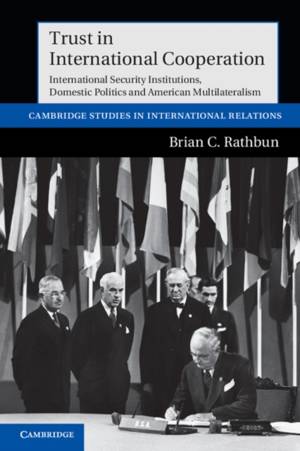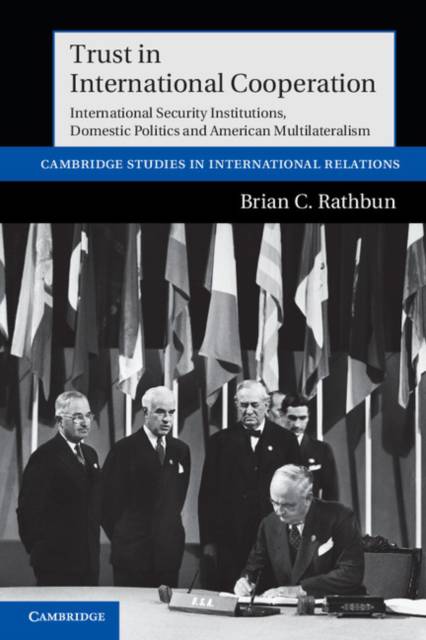
Je cadeautjes zeker op tijd in huis hebben voor de feestdagen? Kom langs in onze winkels en vind het perfecte geschenk!
- Afhalen na 1 uur in een winkel met voorraad
- Gratis thuislevering in België vanaf € 30
- Ruim aanbod met 7 miljoen producten
Je cadeautjes zeker op tijd in huis hebben voor de feestdagen? Kom langs in onze winkels en vind het perfecte geschenk!
- Afhalen na 1 uur in een winkel met voorraad
- Gratis thuislevering in België vanaf € 30
- Ruim aanbod met 7 miljoen producten
Zoeken
Trust in International Cooperation
International Security Institutions, Domestic Politics and American Multilateralism
Brian C Rathbun
€ 27,95
+ 55 punten
Uitvoering
Omschrijving
Trust in International Cooperation challenges conventional wisdoms concerning the part which trust plays in international cooperation and the origins of American multilateralism. Rathbun questions rational institutionalist arguments, demonstrating that trust precedes rather than follows the creation of international organizations. Drawing on social psychology, he shows that individuals placed in the same structural circumstances show markedly different propensities to cooperate based on their beliefs about the trustworthiness of others. Linking this finding to political psychology, Rathbun explains why liberals generally pursue a more multilateral foreign policy than conservatives, evident in the Democratic Party's greater support for a genuinely multilateral League of Nations, United Nations and North Atlantic Treaty Organization. Rathbun argues that the post-Second World War bipartisan consensus on multilateralism is a myth, and differences between the parties are growing continually starker.
Specificaties
Betrokkenen
- Auteur(s):
- Uitgeverij:
Inhoud
- Aantal bladzijden:
- 274
- Taal:
- Engels
- Reeks:
- Reeksnummer:
- nr. 121
Eigenschappen
- Productcode (EAN):
- 9781107603769
- Verschijningsdatum:
- 1/12/2011
- Uitvoering:
- Paperback
- Formaat:
- Trade paperback (VS)
- Afmetingen:
- 152 mm x 224 mm
- Gewicht:
- 453 g

Alleen bij Standaard Boekhandel
+ 55 punten op je klantenkaart van Standaard Boekhandel
Beoordelingen
We publiceren alleen reviews die voldoen aan de voorwaarden voor reviews. Bekijk onze voorwaarden voor reviews.









